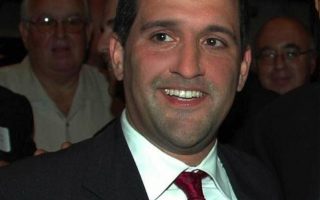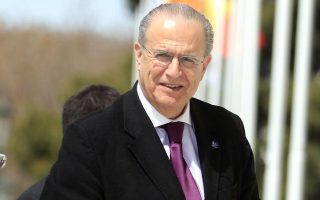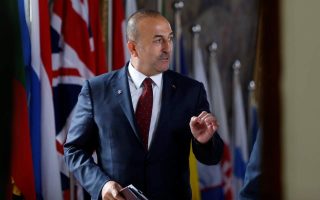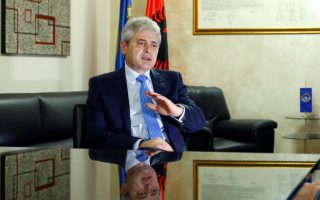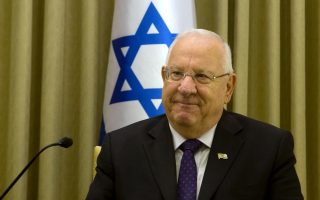‘The Balkans is too small to be divided’
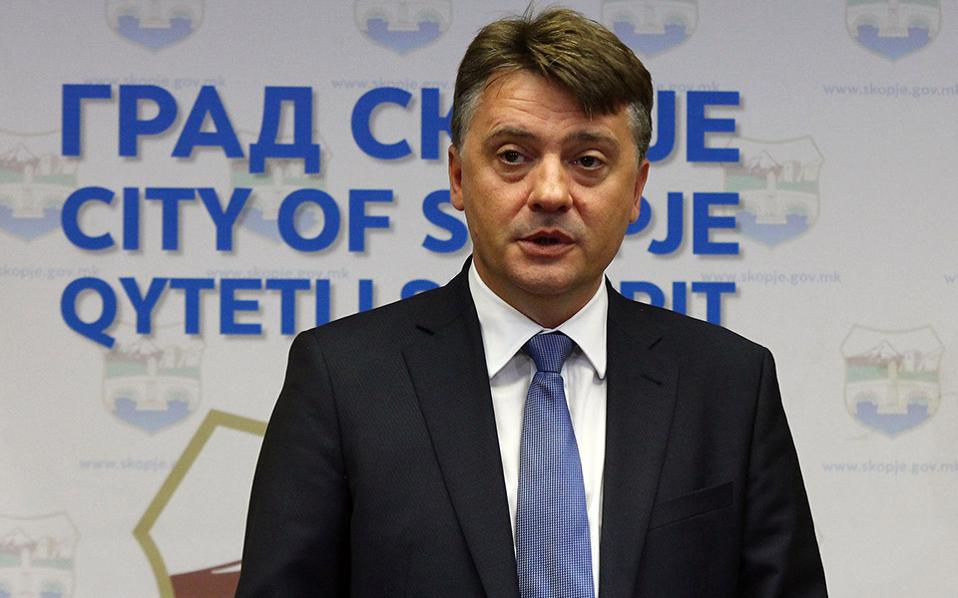
“Decision makers on both sides should ask themselves in every negotiation process: Could the other be right? That is the only way to reach an understanding,” Skopje Mayor Petre Shilegov told Kathimerini in a recent interview.
With talks between Greece and the Former Yugoslav Republic of Macedonia having entered a very delicate stage, Shilegov, who is also a close aide to FYROM Prime Minister Zoran Zaev, said that “this is a rare opportunity to reach a favorable and dignified solution for all parties.”
“Responsible leaders should work on finding solutions for their peoples, states and cities, and not on creating new problems, or perpetuating old ones. I believe that if there is a will, there can always be a solution, regardless of the initial differences,” he added.
Shilegov spoke about the living history of the Balkan peoples – as his grandfather was born in Greece’s northern city of Edessa – the bridge-building that is needed, and the damage wrought upon the country’s capital by the Skopje 2014 project, launched by former prime minister Nikola Gruevski.
You keep underlining that you prefer to discuss the future of your children rather than the past of your grandparents. Don’t you think there is a huge burden of “history” that needs to be lifted if Greece and FYROM are to reach a consensus?
I believe the discussion of history should be left to the historians and my impression is that politicians usually do a bad job of interpreting historical facts. However, in a region where nations compete over who is greater and older, the issue of history is a burning one and can only complicate things. That is why I think we should move forward. Because that burden can lock our efforts in a nationalist discourse where parties tend to lose their rational behavior and act impulsively.
Prime Minister Zaev and you have introduced a totally different approach to the dispute with Greece. On the other hand, you are both politicians and you know there are red lines that neither side should cross. Are you concerned that Greece and FYROM might miss the opportunity to find a solution?
The Balkans is too small to be divided and for its peoples and cities to live behind walls. Responsible leaders should work on finding solutions for their peoples, states and cities, and not on creating new problems, or perpetuating old ones. I believe that if there is a will, there can always be a solution, regardless of the initial differences. The left and the right bank of a river are never the same, but bridges can be built.
Your grandfather was born in Greece, and you speak a little Greek. Would you say that these mixed ethnic histories in the Balkans resemble bridges or open wounds?
I think it is different for everybody. I learned to overcome my family’s trauma with the Greek Civil War, but some families are still suffering from the unfortunate events seven decades ago. I am sure that it is the same case on the other side of the border in Greece. Some people have moved on, some haven’t, but I think that time heals everything and as long we have an honest relationship our people are going to support us in our good intentions.
Have you ever thought, “The Greeks may be right”? I mean, even the Greeks who want a deal with FYROM find it difficult to understand claims over a “Macedonian identity.”
That is the question decision makers on both sides should ask themselves in every negotiation process: Could the other be right? That is the only way to reach an understanding – by trying to see through the eyes of the other and understand his perceptions of you. As always, the answer is somewhere in the middle. The Greeks need to ask themselves that question as well: “Could the Macedonians be right?” I know that many people here have asked that question publicly and I hope that there are similar voices in Greece too.
Recently you mentioned that Alexander the Great was never a part of your country’s history. Still, a number of statues in Skopje are dedicated to the ancient leader.
We have no shortage of monuments and sculptures in this city. Among several dozens of them, there are a few dedicated to figures from Ancient Macedonia. Most of them misrepresent and misinterpret events and figures in the history of both Macedonia and the world. I can see why you are interested in this aspect, but as a mayor that is not my only concern and perception about the Skopje 2014 project.
It’s not just Greeks who seem to complain. Recently The New York Times labeled Skopje a “capital of kitsch.”
I don’t need the NYT to tell me what I can already see. When that article first came out, I was not mayor of Skopje, but I remember a lot of media articles with similar content and I have always felt that the foreign perception of the Skopje 2014 project is a bit simplified as it usually covers what is visible rather than what is behind it. The project tortured this city, with a lot of corruption and money wasting, permanent destruction of the city’s public spaces and cultural heritage, consequences on the living environment and greenery… But most importantly, this project came at a very high maintenance cost for taxpayers and the kitsch aspect is the least of my worries at the moment.
You recently had a second meeting with Athens Mayor Giorgos Kaminis. Is it time we started taking “city diplomacy” seriously? What are your goals?
I believe that this is a rare opportunity to reach a favorable and dignified solution for all parties and I was glad to know that Mayor Kaminis feels the same way. The mayors are not leading this process, but they can definitely help by bringing the citizens of the capitals closer and promoting the environment of friendship and understanding that is so crucial in reaching historical agreements like we are hoping to have soon. We signed an agreement to cooperate on several issues such as resilience, environment, urban planning, civic involvement, digitalization… and we agreed to cooperate within the framework of the Eurocities network.
The first project we are working on is taking the Constantinos Doxiadis exhibition to Athens. The Museum of the City of Skopje initiated this great idea and we gladly supported it, as the work of this architect who helped Skopje rise from the ashes of the 1963 earthquake is in fact a bridge between the two cities and a wonderful example of a constructive history between neighbors.
As a “new-generation” politician and vice president of the Social Democratic Union, what would you set as your primary goal for FYROM in the coming years?
Stability. That is the basic ingredient for a prosperous society and it is the only way that the region has a chance of a dignified life. The cities and countries in the Balkans are not islands and cannot exist separated from each other. They need to work closely together, helping themselves by helping each other.
